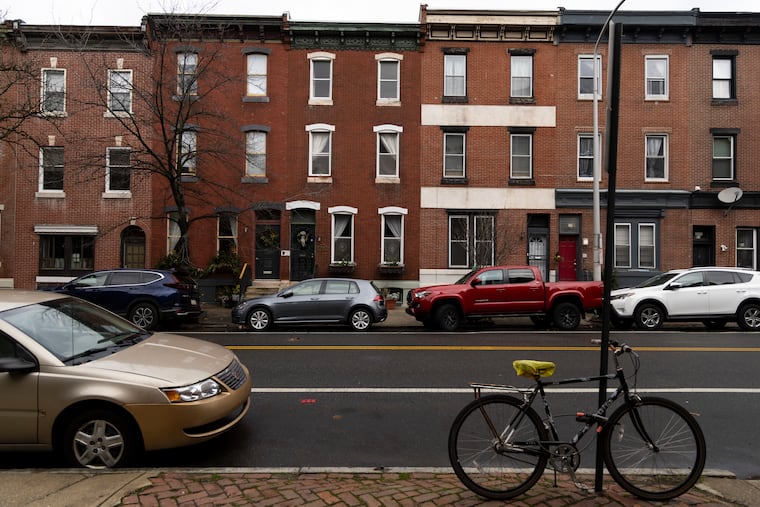Want to save money? Shop around for homeowners insurance
Delaware Valley Consumers’ Checkbook collected annual premiums for sample policyholders and found costs vary significantly from company to company.

If you haven’t shopped around for homeowners insurance coverage in the last few years, do it now. Most Delaware Valley area homeowners can save more than $500 a year by switching from their current insurance company to a lower-priced one. Some will save more than $1,500.
Researchers from nonprofit Delaware Valley Consumers’ Checkbook collected annual premiums for sample policyholders from the companies that write almost all the homeowners insurance business in the area and found costs vary significantly from company to company.
For example, a sample family living in Montgomery County (two-story, 3,200-square-foot, stone-and-brick home with five bedrooms and 3½ bathrooms with a $900,000 estimated replacement cost) would pay $1,793 per year with Allstate, $1,860 with NJM, or $1,921 with Selective, compared to $3,255 with Homesite, $3,533 with State Farm, or $5,220 with The Hartford. Condo owners and renters will also save money by shopping around for better rates.
Checkbook has done these types of comparisons for property insurance for 30-plus years, always turning up big price differences among the largest insurers. And often, highly rated companies offer low premiums. To help you find a low-cost, high-quality company, Inquirer readers can access Checkbook’s ratings of homeowners insurance companies for free through March 5 at Checkbook.org/Inquirer/homeowners.
Pricing methods and premiums can dramatically change over time, so shop around for a better rate at least every few years. And if you’re considering an insurance switcheroo, you don’t have to wait until your policy term ends to do it: Although you might have to pay a small administrative fee to cancel your current insurance, this fee is usually much less than the savings you’ll get from a lower-cost carrier.
Even if you select a low-priced company, don’t waste hundreds of dollars a year buying the wrong coverage. Here are some tips on minimizing premiums:
Take a high deductible. You’ll get a big discount, and it will make you less likely to file small claims that may generate future premium hikes. Keep in mind that the purpose of insurance is to protect you from losses that you can’t afford to cover yourself. You need to determine how big a loss you can incur without unacceptably disrupting your life, and then set your insurance deductible levels accordingly.
Obtain an accurate estimate of what it will take to rebuild your home. Many homeowners do not maintain adequate insurance coverage, leaving themselves financially vulnerable in the event of a total loss. Don’t count on your insurer to keep your homeowners policy up to date. Every few years have your insurer reestimate your home’s replacement cost and then adjust your coverage as needed.
Limit the number of claims you make. Filing a claim will result in higher premiums from most insurers and may cause an insurer to drop you, which will make it difficult and more expensive to get insurance elsewhere.
Maintain a good credit record. In Delaware, New Jersey, and Pennsylvania, companies are permitted to use credit scores to set their rates. With some companies, a poor-credit penalty more than triples their premiums. Checkbook’s view is that all states should ban the use of credit scores and other financial information to set insurance rates.
Consider declining optional higher coverage limits and other add-ons. Raising limits for some types of coverage — such as liability coverage — won’t increase your premium much, and most consumers find the extra protection worth it.
Consider buying your homeowners and auto policies from the same company. Many companies offer dual-policy discounts to customers who insure both their homes and cars with them. But such discounts are usually small and won’t make a high-priced company a good deal. (Checkbook also evaluates auto insurance companies for quality and price.)
Consider that what you get with basic coverage is particularly important if you own an older home, where you might want to make sure expensive-to-replace features like woodwork are properly covered. Standard policies promise to repair or replace what is damaged, but not to pay for an exact replica of what was lost. Also, with older homes, make sure you’re covered in case there are additional costs to bring old systems up to code during a rebuilding process.
No matter which company you choose or which coverage you select, you’ll want a company or agent that offers unbiased information and quotes accurate prices. Unfortunately, Checkbook’s researchers often found many agents more interested in selling them too much insurance and unwanted options than dispensing solid advice and reliable price quotes. When shopping for insurance, speak with several companies and agents — and question price quotes that seem excessive or include unrequested coverage.
Document features of your home and keep the list up to date. If you make improvements, promptly report them to your insurer. Take pictures or videos of your belongings and keep this information in a safe place away from your home. Being able to prove the value of your home and belongings will ensure that you’ll be fairly compensated in the event of a loss.
Delaware Valley Consumers’ Checkbook magazine and Checkbook.org is a nonprofit organization with a mission to help consumers get the best service and lowest prices. We are supported by consumers and take no money from the service providers we evaluate.